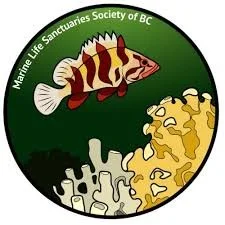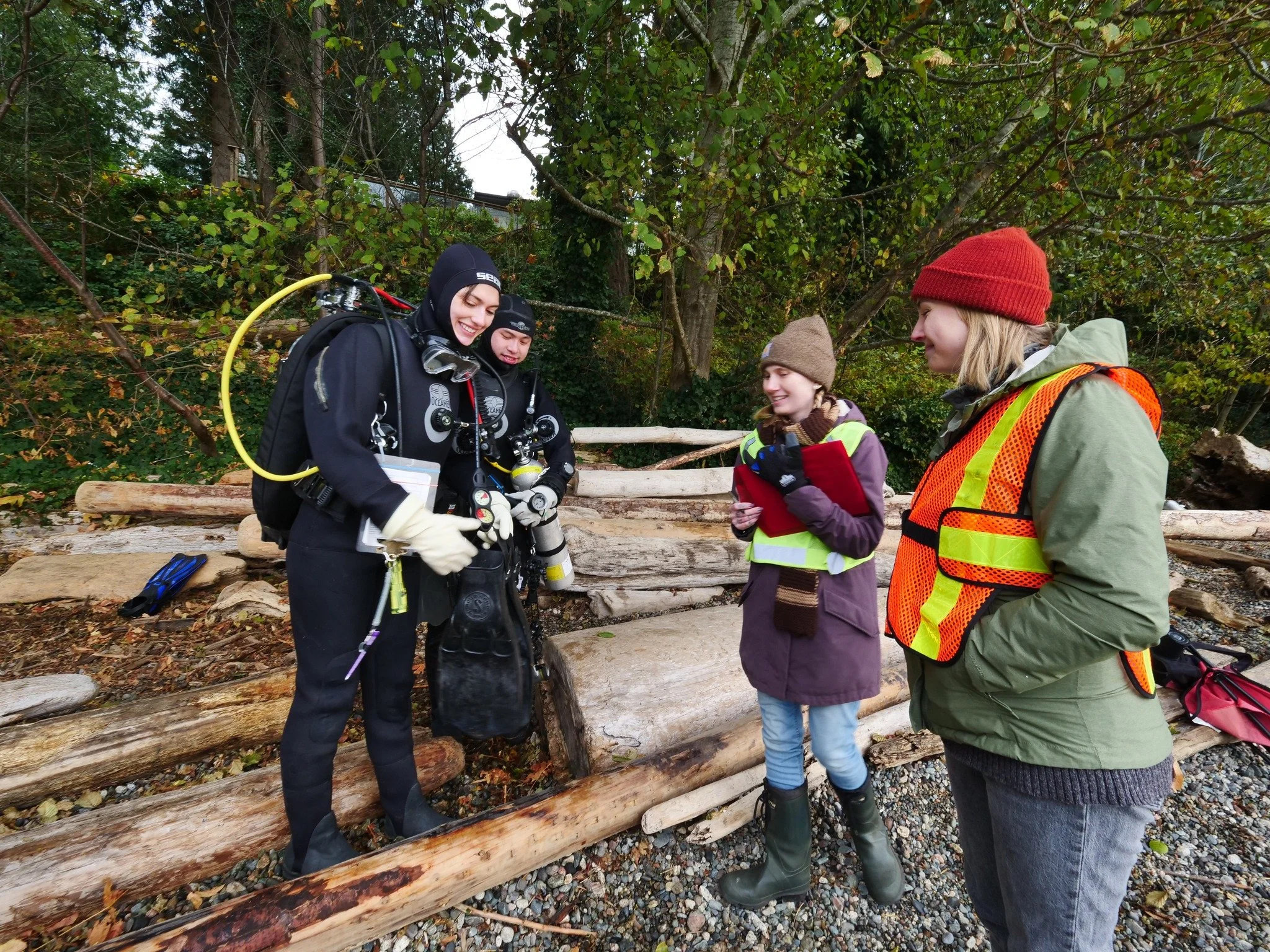Rockfish Monitoring
The Annual Rockfish Abundance Surveys to monitor Threatened and At Risk rockfish species in Átl'ḵa7tsem/Howe Sound were paused by Oceanwise in 2020. With funding from Environment and Climate Change Canada, we contracted Marine Life Sanctuaries Society (MLSS) to ensure a continued, active and sustainable rockfish monitoring program for Átl'ka7tsem / Howe Sound. This work strengthens effective conservation measures in and around our glass sponge reef marine refuges, as well as brings improvements to Rockfish Conservation Areas (RCAs).
Rockfish are extremely long-living, with a maximum age measured in decades. They are slow to reach reproductive age. Without conservation measures to limit or ban fishing, many species become overfished before having an opportunity to reproduce—meaning detectable recovery would not necessarily be expected in a few years or even a decade. Rockfish are one of the unique species that contribute to the biodiversity in the marine environment of the region.
Conservation measures put in place by Fisheries and Oceans Canada in 2007 led to specific RCAs and a ban on fishing for rockfish in Átl'ḵa7tsem/Howe Sound. These fishing closures help the threatened populations of these slow-growing fish and their habitats. The Howe Sound Ocean Watch reports from 2017 and 2020 provide the history, survey results, and recommendations.
Project Objectives
Project objects are to develop a plan for citizen science based marine monitoring program for Rockfish species in Howe Sound, including Yelloweye rockfish (COSEWIC Status: Threatened, SARA Status: Special Concern), Quillback rockfish (COSEWIC Status: Threatened) and Canary rockfish (COSEWIC Status: Threatened), that is recognized and supported by external science advisors and staff with the Department of Fisheries and Oceans Canada.
To achieve this objective, it will be necessary to: a) develop survey protocols. b) select appropriate sites to conduct monitoring c) train volunteers in rockfish identification, and d) carry out initial diving surveys with trained volunteers.
This program will serve to inform Fisheries and Oceans Canada’s assessment of updated Rockfish Conservation Areas and Marine Refuges, and has the potential to increase protection of these marine environments.
Project Updates:
October 2025 - Rockfish monitoring continues in Howe Sound led by the Marine Life Sanctuaries Society (MLSS). This monitoring program includes temperature logging of the Glass Sponge Reefs to monitor their health over time, as they provide vital habitat for rockfish and many other species. MLSS’s new Programs and Project Vessel, funded by private donations and Fisheries and Oceans Canada, will be out on the water in the coming months, building capacity in the region for marine research and monitoring. For more on MLSS’s project activities, visit their website.
April 2025 - Monitoring Survey Program 2024 Summary Report.
It was a successful year of Rockfish Monitoring in the region. MLSS has established a rockfish monitoring protocol that will be used by DFO. Washington State Young-of-the-Year Rockfish Monitoring Program researchers and key volunteer partners came to Howe Sound multiple times this year to help train volunteers in their methodology and conduct dive surveys.
This year saw over 40 individual divers participating in 18 days of dive surveys, with 4 to 12 divers per dive day, each typically conducting 2 dives per day. There were a total of 1,290 volunteer hours. Rockfish
April 2024- March 2025 Continuing monitoring with divers, and the contracting of Dynamic Ocean consultants for Data Management and Rockfish Survey Protocols.
April 2024
With funding from HSBRIS, DFO, and BC Parks, MLSS was able to carry out rockfish monitoring in the region once again. During the winter, researchers from the Washington State Young-of-the-Year Rockfish Monitoring Program, along with key volunteer partners, visited Howe Sound to train volunteers in their methodology and conduct several days of dive surveys.
This year, 40 individual divers participated in 12 days of dive surveys, with 5 to 14 divers per day, typically conducting 2 dives each. There were a total of 947 volunteer hours!
Nine species of adult rockfish were documented by the volunteer teams: Copper, Quillback, Yellowtail, Puget Sound, Vermillion, Tiger, Yelloweye, Black and Deacon. Both Quillback Rockfish and Yelloweye Rockfish are currently COSEWIC Listed and under consideration for the Species at Risk Act. Sightings of 3 Deacon Rockfish at one site were also noteworthy, as previous sightings of a single individual in both 2017 & 2018 were the first local observations in 27 years. Sightings of Black Rockfish over 4km north of where they were reintroduced by the Vancouver Aquarium 20 years ago were also encouraging.
August 2023 - site selection for monitoring, coordination of more training opportunities, and development of survey materials.
April 2023 to January through March 31, 2023 - Activity included the development of survey protocols, selection of a limited number of sites and Rockfish ID training for volunteer divers. The first portion of this project concluded in late March 2023. This phase included volunteer training, dive surveys, and submission of a funding request to the Department of Fisheries and Oceans.
April 2023 to March 2026 - LD training seminars continue. The number of sites will be increased, and environmental monitoring equipment will be installed, as determined by scientific advisors and available external funding.
Project Team - Lead: Adam Taylor - Marine Life Sanctuaries Society Contact: adamtaylor@mlssbc.com
The Marine Life Sanctuaries Society (MLSS) is an organization focused on marine conservation and educational outreach and has been directly involved in creating most local marine protections. MLSS has worked for many years advocating for the protection of rockfish and glass sponge reefs. The many relationships with divers, academia and the Department of Fisheries and Oceans are key to furthering protections and reducing the loss of these species.











